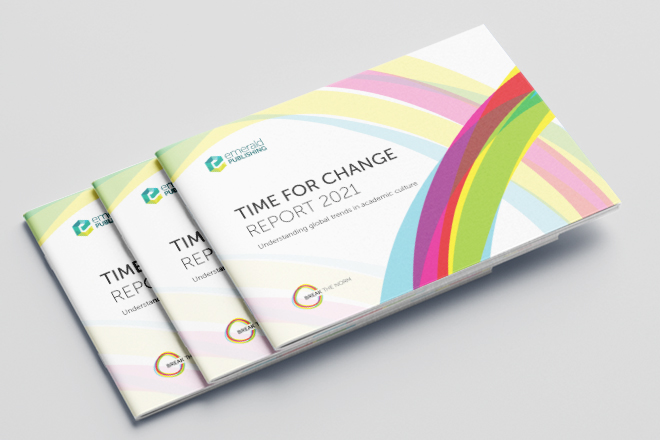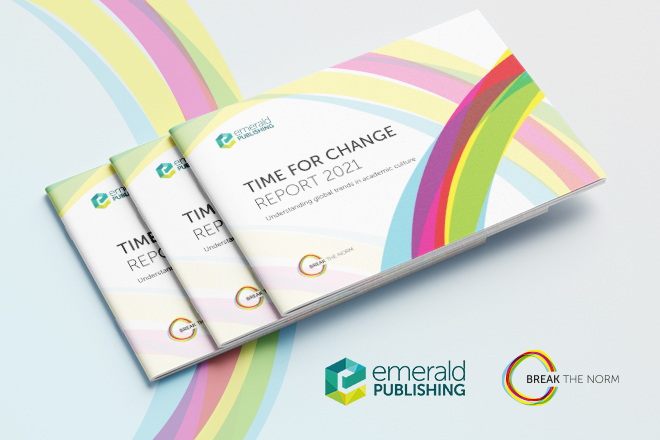Open access publishing has been a hero during the COVID-19 pandemic. While the success of the COVID open access movement has helped to foster interest in open access publishing more generally, some countries have been pushing the open access agenda for several years. The UK is one of those driving open and transparent research culture, with aims to make it the norm.
The country’s largest funding body in the UK, UK Research and Innovation, has recently taken a bold step to further open access publishing. It has mandated that all beneficiaries must publish peer reviewed articles immediately free to read on publication, starting from April 2022. This policy is in line with Plan S, an initiative that came into effect in 2021, which calls upon funders to support a strategy for all research papers funded by public grants to be published through open access routes.
Despite the clear benefits of open and rapid publication, some researchers and institutions have valid concerns about how they will navigate this step-change in academic publishing. Some worry that the system isn’t ready for the move and that they won’t have enough funds for open access article processing fees. There are additional concerns over quality, as well as the career risk of not publishing in a prestigious peer-reviewed journal.
On this page
- Barriers to open access publishing
- Issues with open data
- Attitudes to peer-review and preprints
- Some thoughts from our respondents
- The data
- Download the report as a PDF
In the report
- Widening inequalities
- Research evaluation
- Academic culture
- Openness & transparency [this page]
- Role of the publisher
Barriers to open access publishing
The results of our survey echo many of the known concerns and challenges to open access. Predictably, limited funding firmly emerges as the top barrier to open publishing, chosen by 74% of academics globally, with SSA most concerned (88%). Other factors making the top three challenges, include the need to publish in traditional journals with established metrics (44%), and publishers’ resistance to move away from paywalls (30%).
At the regional level, North America records the highest scores in four challenges: confusion over open access mandates (27%), not enough publishing platforms (22%), resistance of publishers to move away from paywalls (46%), and open access is not yet widely accepted by all subject disciplines/academic institutions (45%). Academics 20+ years post PhD are another group that flagged these four concerns more than any other career stage.
Issues with open data
Turning to concerns over open data, we found that sensitivity of personal data (53%) continues to remain the biggest challenge, as well as its potential reuse (47%). Academic incentives also appear to be holding back progress on open data, with 38% agreeing that it isn’t widely accepted by all disciplines and institutions, and 32% not being rewarded for making data open.
At the regional level, concern over datasets containing sensitive or personal information is highlighted most by the UK (65%), Australasia (63%) and North America (60%). This issue most resonates with students (59%) compared to other career stages, and with slightly more women than men (57% versus 51%).
The UK is the country most worried about data security – 64% against a global 47%. And this challenge also saw the biggest gap between men and women (42% versus 56%).
Attitudes to peer-review and preprints
Our findings suggest that more than 1 in 10 (15%) academics globally aren’t familiar with preprints and in SSA this stands at almost 1 in 5 (19%). Women academics are also less likely than men to be aware of preprints (18% versus 13%). Even among the informed, enthusiasm for preprints is conservative, with the majority preferring to stick with traditional peer-review. On the positive, almost 1 in 4 agree that preprints could be an answer to rapid and open publication, however, they still have reservations over research quality (19%) and the danger of non-peer reviewed research entering the public domain (20%).
Given the concerns around preprints, double-anonymous peer review (double blind) remains the top choice among academics globally, with a majority (81%) choosing this option.
Our findings highlight the multiple challenges around open data, as well as academics’ worries around widening disparities. Here are some of the issues that stood out:
Some thoughts from our respondents
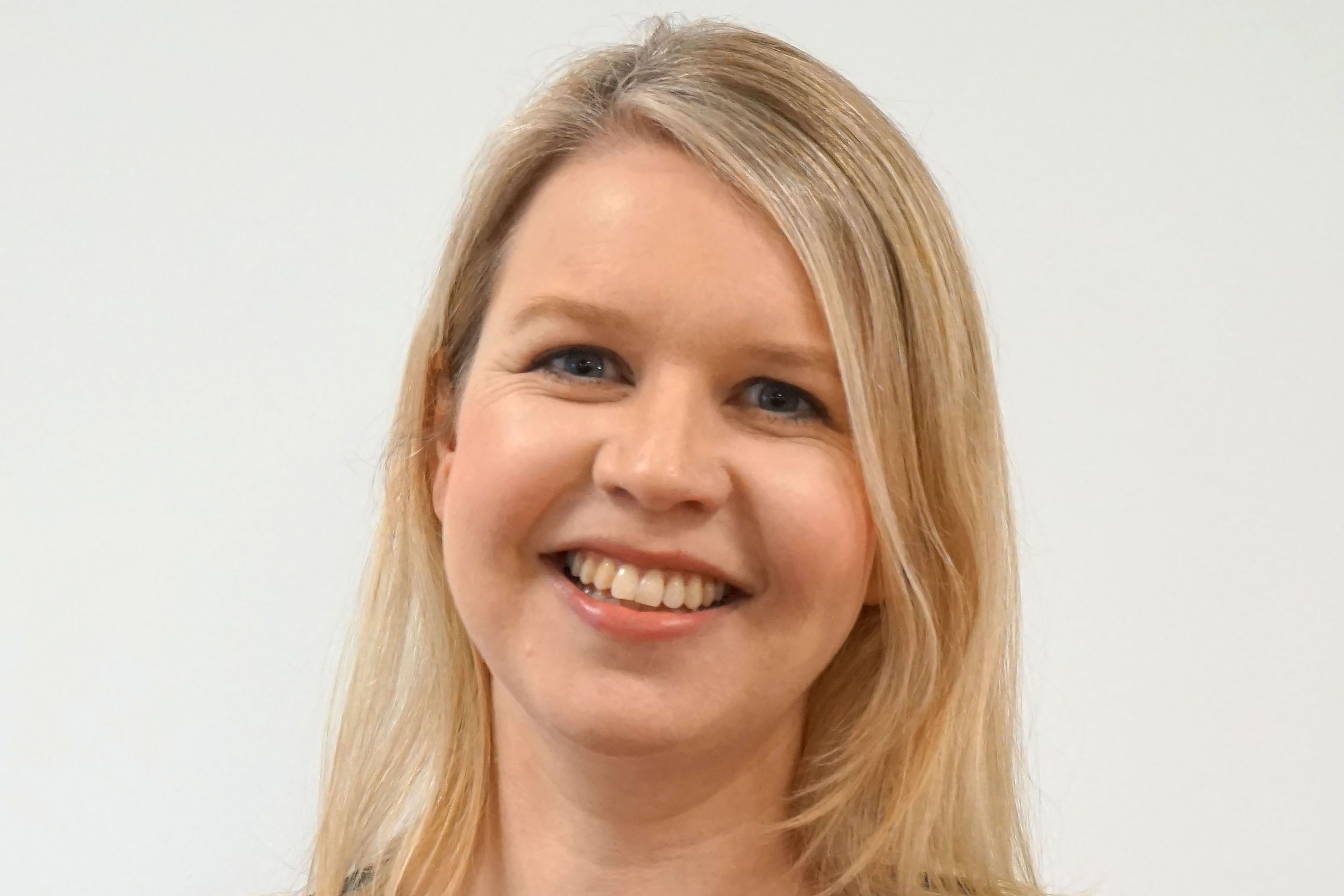
Building an open research culture
When Emerald’s Head of Open Research, Shelley Allen, thinks about the future of publishing, she is positive – it is Open. But reflecting on Emerald’s Time for Change Report 2021, she calls attention to the challenges that must be overcome, and urges all stakeholders to play their part to fully progress open practices.
The data
What, in your opinion, are the challenges to publishing open data?
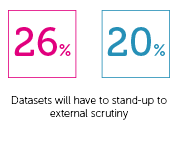
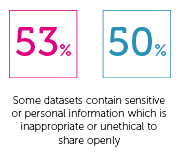
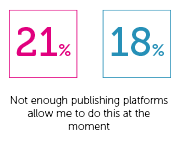
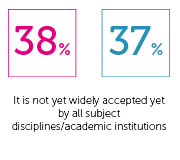
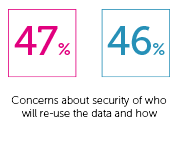
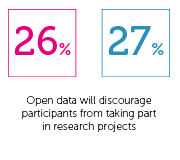
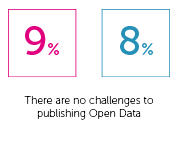
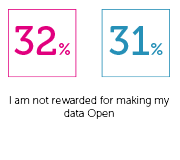
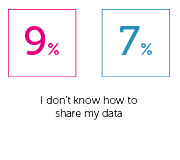
| Statement | 2021 | 2020 |
|---|---|---|
| Datasets will have to stand up to external scrutiny | 26 | 20 |
| Some datasets contain sensitive or personal information which is inappropriate or unethical to share openly | 53 | 50 |
| Not enough publishing platforms allow me to do this at the moment | 21 | 18 |
| It is not yet widely accepted yet by all subject disciplines / academic institutions | 38 | 37 |
| Concerns about security of who will re-use the data and how | 47 | 46 |
| Open data will discourage participants from taking part in research projects | 26 | 27 |
| There are no challenges to publishing open data | 9 | 8 |
| I am not rewarded for making my data open | 32 | 31 |
| I don’t know how to share my data | 9 | 7 |
Which of the following peer review methods are the most effective, either as an author or as a reviewer?
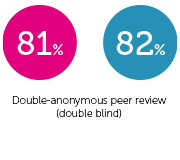
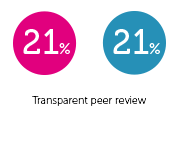
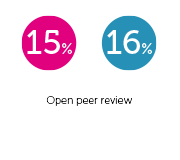
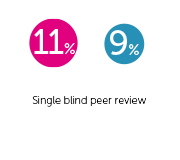
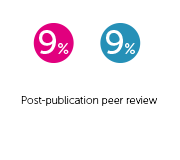
| Method | % 2021 | % 2020 |
|---|---|---|
| Double-anonymous [blind] peer review | 81 | 82 |
| Transparent peer review | 21 | 21 |
| Open peer review | 15 | 16 |
| Single anonymous [blind] peer review | 11 | 9 |
| Post-publication peer review | 9 | 9 |
What is your opinion of pre-prints? Please note, no explanation of pre-prints was provided to respondents.
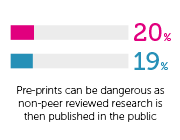
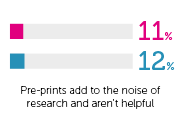
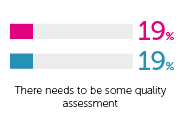
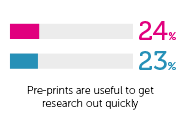
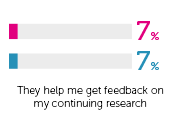
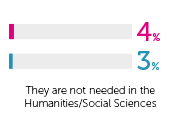
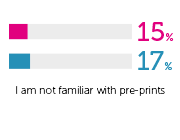
| Statement | % 2021 | % 2020 |
|---|---|---|
| Pre-prints can be dangerous as non-peer reviewed research is then published in the public domain for all to use. | 20 | 19 |
| Pre-prints add to the noise of research and aren’t helpful | 11 | 12 |
| There needs to be some quality assessment | 19 | 19 |
| Pre-prints are useful to get research out quickly | 24 | 23 |
| They help me get feedback on my continuing research | 7 | 7 |
| They are not needed in the humanities / social sciences | 4 | 3 |
| I am not familiar with pre-prints | 15 | 17 |
What, in your opinion, are the challenges to publishing open access?
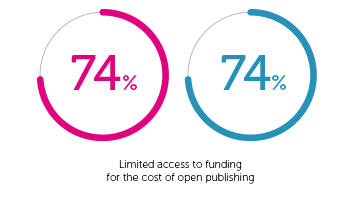
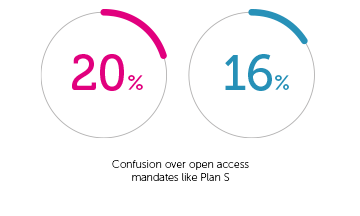
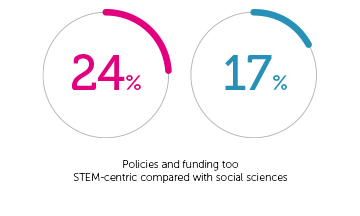
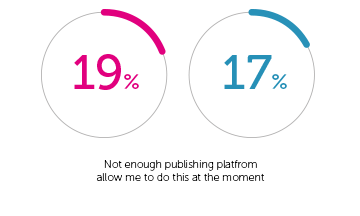
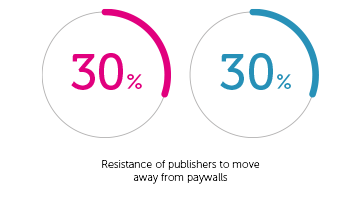
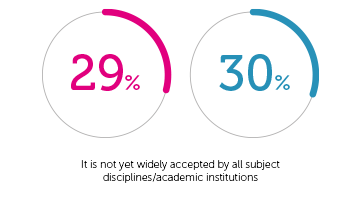
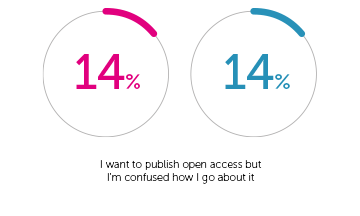
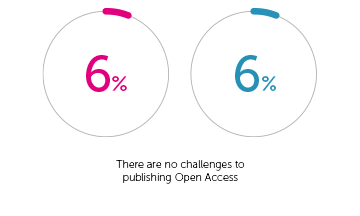
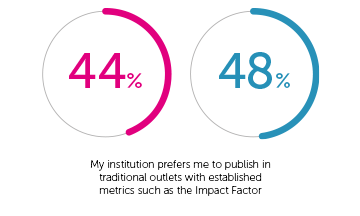
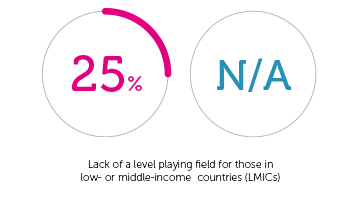
| Statement | % 2021 | % 2020 |
|---|---|---|
| Limited access to funding for the cost of open publishing | 74 | 74 |
| Confusion over open access mandates like Plan S | 20 | 16 |
| Policies and funding too STEM-centric compared with social sciences | 24 | 17 |
| Not enough publishing platforms allow me to do this at the moment | 19 | 17 |
| Resistance of publishers to move away from paywalls | 30 | 30 |
| It is not yet widely accepted by all subject disciplines / academic institutions | 29 | 30 |
| I want to publish open access but I’m confused how I go about it | 14 | 14 |
| There are no challenges to publishing open access | 6 | 6 |
| My institution prefers me to publish in traditional outlets with established metrics such as the impact factor | 44 | 48 |
| Lack of a level playing field for those in low- or medium-income countries (LMICs) | 25 | n/a |
Download the report as a PDF
You can get a PDF version of our Time for change report by filling in this form; you'll be able to download the report instantly.
